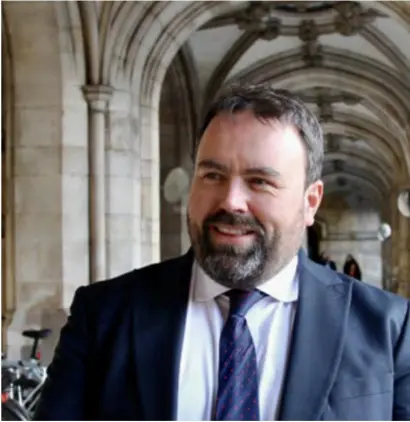Chris Loder MP is a long-time advocate for the new Council Tax premiums on second homes to combat housing inequality in Dorset

You may have seen the news last month that second homes in Dorset will be subject to a 100 per cent Council Tax premium from 1st April 2025. In addition to the Second Homes Tax, from 1st April this year, properties classified as long-term empty and unoccupied will pay a 100 per cent Council Tax premium. I have consistently campaigned for the introduction of a second homes tax; back in September, I raised the issue directly with the Chancellor.
We have a particularly high concentration of second homes in West Dorset, compared with other parts of the county. This is especially so for our villages and hamlets, including those in and around Sherborne and Bridport. Recent figures suggest that there are now more than 2,000 second homes in the county, many of them unoccupied for long periods. It’s an issue that affects much of rural Britain, and it’s unfairly preventing hard-working, locally-born residents in West Dorset from getting onto the property ladder.
It also risks zapping the life and character out of our rural communities.
The introduction of a Second Homes Tax in West Dorset is only permissible because of the Government’s Levelling Up and Regeneration Act, which I voted for at every stage in Parliament. The legislation also allows for greater localised control over the growth of short-term lets, which are an additional issue in rural areas. New regulations, aimed at addressing the rise in properties used as short-term lets, will be introduced by the summer. They include mandatory registration of short-term let properties and the introduction of a new separate class of planning terms. In addition, where there are local concerns about the over-concentration of short-term lets, Dorset Council can require a planning application for change of use of a dwelling. Taken together, these measures represent a significant step towards protecting our local communities and our way of life in rural Britain.
Over the border
In other news, the topic of local government finance in our neighbour, Somerset, has once again been in the news. Many of our region’s local authorities have been setting their budgets this week. Somerset Council has proposed an increase of 4.99%in Council Tax. But we ought not to forget that the Liberal Democrat administration in Somerset only weeks ago lobbied the Government for an additional 5% increase, which would have seen an enormous hike in people’s bills in the middle of a cost-of-living crisis.
And it still doesn’t detract from the overall view that at all tiers – parish, town, and county – Somerset residents are facing prospective tax increases on an unprecedented level. We need to again ask why Somerset Council thinks it is acceptable for Somerset’s taxpayers to shoulder the cost. It was, after all, under the Liberal Democrats’ leadership that the black hole* in this council’s finances ballooned from £38 million to £100 million – a deficit of £62 million that’s pushed Somerset to near-bankruptcy.
Tax rises have also now been confirmed for nearby Yeovil, where the Lib-Dem run town council has approved its biggest ever tax rise: a Band D home in the town faces a 90% increase and will pay an extra £130 a year.
Taunton residents will also be facing an eye-watering increase, where another Lib Dem-run town council voted through a 179% increase in Council Tax – a Band D home in the county town will pay an extra £192 a year.
In addition, Somerset residents in towns such as Langport, Somerton, Martock, have parish precepts within the top 50 in England, costing households as much as £325 a year…
As always, I’d be most interested to know your views on these topics. You can contact me by email: hello@chrisloder.co.uk and you can keep up to date with my latest news by visiting chrisloder.co.uk or write to me at House of Commons, London, SW1A 0AA.
- Ed. note: The Conservatives ran the former Somerset County Council from 2009 to 2022.



